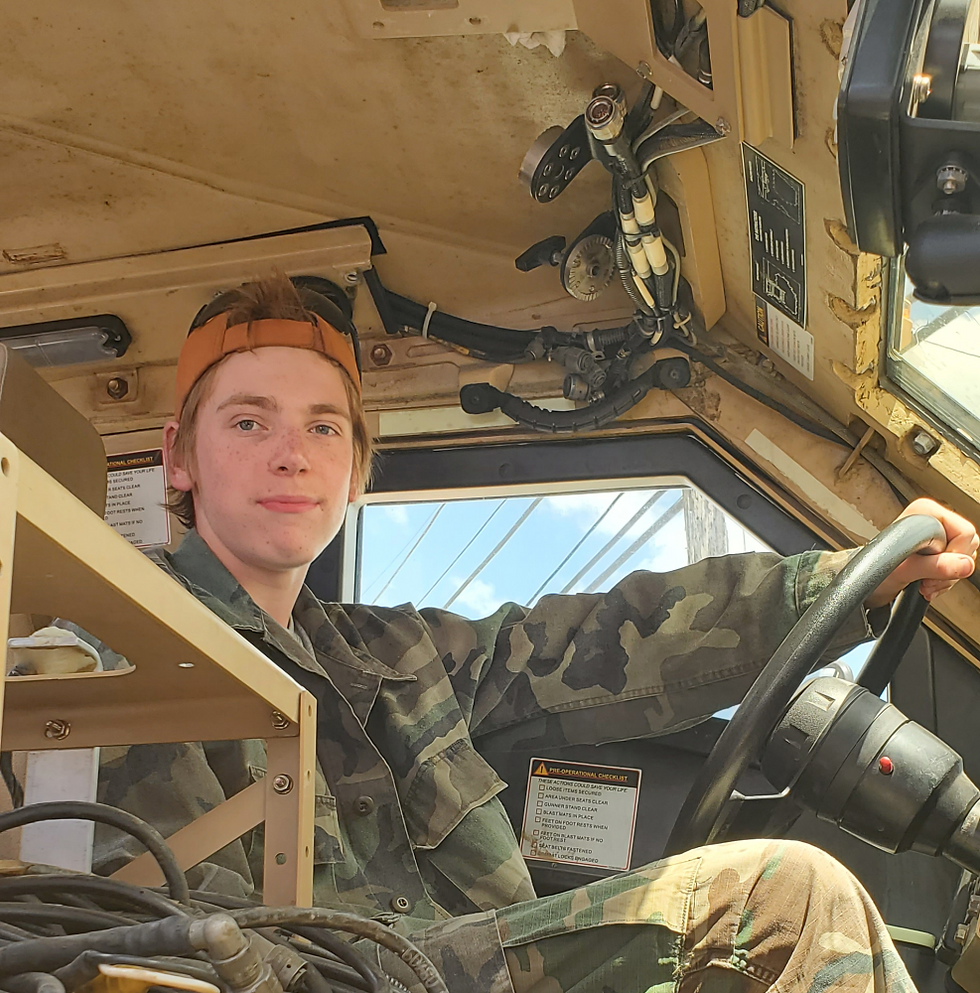Mom and Dad are fighting again
- EG Weiss

- May 27, 2023
- 6 min read

While we sit and watch the arguments and childish antics over the debt ceiling, one has to wonder if June 5th will find us completely out of money as some suggest could be the case.
The stalled/not stalled/stalled “talks” are already affecting what is happening along U.S. Borders which has been one subject of the debt ceiling debates. Because of the time being spent on the “talks”, two important appropriation meetings have already been cancelled and one was for a massive future border funding bill. The $91 billion funding bill would set aside money for every agency within DHS, including Border Patrol, U.S. Customs and Border Protection and Immigration and Customs Enforcement through September of 2024.
So while mom and dad are fighting in the living room again, the children are in the kitchen making their own dinner.
An immigration bill that would allow the State of Texas to create its own border police force, impose stricter penalties on asylum-seekers who cross from Mexico illegally, and set up checkpoints closer to the border, has moved closer to passage in Austin while the current administration is inadvertently trashing the financial future of our border security.

Late Wednesday, the Texas Senate passed HB 7 on a third reading, despite objections from three state senators who represent the South Texas border.
The bill — which has undergone massive changes so far this Legislature — has already passed the Texas House. Now it is up to its original author, Texas Representative Ryan Guillen, a Republican from Rio Grande City, to decide whether to accept it with the current modifications.
If Guillen accepts, and the House has enough votes to pass it, then it goes directly to Governor Greg Abbott who has indicated he will sign it.
If Guillen does not approve, a conference committee comprised of lawmakers from both sides will work on tweaking the measure, and any modifications will then go back to both chambers for review and votes before going to the governor, but even this process is not expected to go like the debt ceiling talks.
Migrant advocates say they are worried and say this legislation imposes the strictest measures on those who cross the border. They also claim that it will threaten the safety of border communities, but this is hard to believe when one looks at the current state of influx from Mexico along with the staggering crime rates being presently experienced.

These same migrant advocates are seemingly at peace with the Mayorkis statements earlier this week where he proclaimed his pride in how well things have been going along the border under the present plan.
There are many who would beg to differ including those that are really trying to live, work and raise children on that border. It may be difficult to convince law enforcement in El Paso who have been trying to bring law and order to the epicenter of the current border crisis while dealing with car thefts, car chases, drug trafficking, human trafficking, shootings and gun threats.
It is not just the residents and business owners of El Paso that are paying for the lack of planning, funding and management at the border but it is the immigrants themselves that are paying a heavy price as they deal with other immigrants and cartels selling drugs and committing crimes along the border especially at entry points and around the small pop-up camps on the north side of the border.
The current situation should be bringing more concern to these advocates that do not like the look of HB 7. According to Roberto Lopez of the Texas Civil Rights Project, HB 7 is “probably the most dangerous piece of legislation that we’ve seen on border issues.”
Lopez went on to say, “It would create mandatory minimums for an individual who might be caught with an undocumented person in their vehicle and it would create a whole entire new police agency to patrol and surveil border communities like those in Brownsville, McAllen, all across the Rio Grande.”

So far I am not hearing anything negative, Mr. Lopez. Your immigrants are presently being shot at, beaten, robbed, raped and even killed while sleeping in the streets because they have no place to go. Current law enforcement, hired to protect an already existing population, cannot feasibly protect an entirely new population of that same number.
If you are concerned that you might get in trouble for transporting an illegal immigrant in your vehicle, then perhaps you should consider this:
If you have an ILLEGAL immigrant in your vehicle, then the word “illegal” may come into play. Here is a definition for those that have yet to invest in a dictionary: illegal means contrary to or forbidden by law, especially criminal law. If you have an open container of alcohol in your car, you may ALSO get pulled over and find yourself in trouble.
Lopez also complains that the measure would allow the state to set up border checkpoints within 30 miles of the Rio Grande, and he says the Texas Border Force would be created using a base of 50 Texas DPS troopers from Abbott’s Operation Lone Star, and the unit would be under the full command of the Texas Rangers. He says other peace officers from other agencies also would be accepted into the force.

So since our border is receiving less and less help from the Federal government in the form of man-power, Texas has decided to create secondary stop points and has found a way to create that man-power without the Feds involved, primarily because the Feds don’t care to be involved.
I reached out to Texas Senator Brian Birdwell this week. Birdwell is one of the measure’s advocates and I appreciated his comments regarding the measure. Birdwell pointed out in simple, easy-to-understand terms that “Mexico’s government is complicit in not controlling their territory, and the federal government is not performing its duties faithfully.”
Birdwell pointed out that there are three governments involved in this situation and that one of them was not going to fail; Texas.
While the Feds have sent more people to the border, it is important to remember that the means and procedures for entering the country changed at the same time leaving not only those extra men and women to do more reporting and paperwork, but the changes created more reporting and paperwork for those existing agents along the border leaving the actual border less patrolled than before the extra man-power was transferred south.
In a report from three weeks ago from the OFFICE OF INSPECTOR GENERAL, Department of Homeland Security, the following was handed to the administration:

U.S. Customs and Border Protection (CBP) and U.S. Immigration and Customs Enforcement (ICE) support complex and intersecting missions related to immigration, trade, and travel.
Since 2019, shifts in U.S. immigration and border security policies, migrant surges, COVID-19, and the overall rising number of migrant encounters along the Southwest border have exacerbated staffing challenges. CBP’s and ICE’s current method of managing law enforcement staffing is unsustainable. CBP and ICE workloads have grown significantly due to factors beyond the Department of Homeland Security’s control, namely increasing border encounters and travel volume.
Despite greater workloads, staffing levels have remained the same, with CBP and ICE using details and overtime to temporarily address the rising number of encounters along the Southwest border.
Based on interviews and survey responses from 9,311 law enforcement personnel, the details and overtime have negatively impacted the health and morale of law enforcement personnel, who feel overworked and unable to perform their primary law enforcement duties.
Although CBP and ICE annually assess their staffing needs, neither has assessed how using details and overtime has affected the workforce and operations. Unless CBP and ICE assess and strategically change their current staffing management at the border, heavier workloads and low morale may lead to higher turnover and earlier retirements. This could worsen staffing challenges and degrade CBP and ICE’s capacity to perform their mission.
In recent years, migrant encounters 4 at the Southwest border have risen from approximately 978,000 in fiscal year 2019 to 2.4 million in FY 2022. The FY 2022 total includes migrants apprehended more than once and exceeds FY 2021’s 20-year record high of more than 1.7 million encounters.



Comments